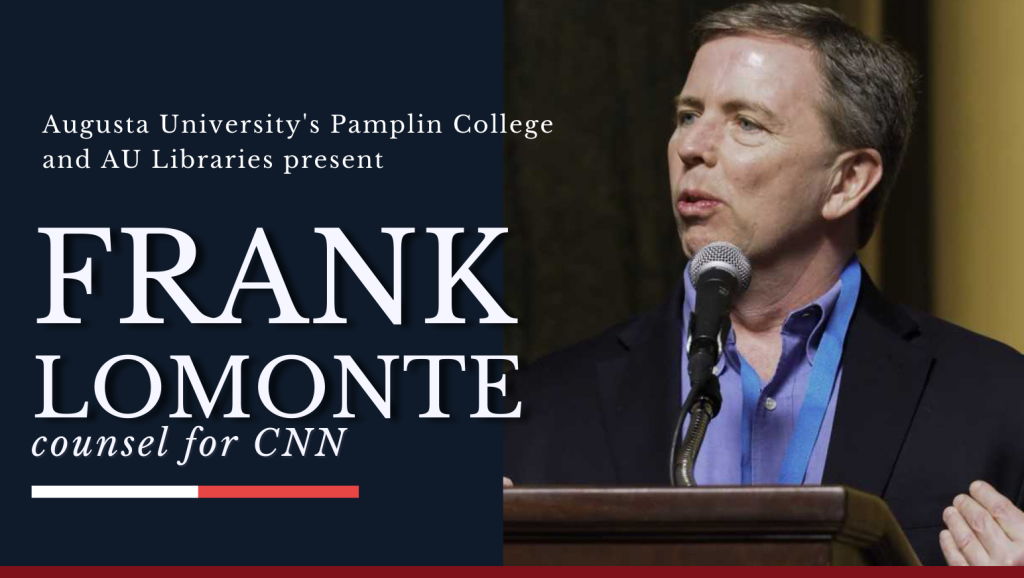First Amendment Law is no stranger to college campuses, said Frank LoMonte, a veteran legal counsel and an attorney for CNN in Atlanta, during the Future of the First Amendment Lecture at Augusta University.
“In several respects, colleges and universities, like all government agencies, overreach in restricting people’s ability to speak and etiquette to speak and in keeping secret things that the public has a right to know,” LoMonte said.
The 2023 Future of the First Amendment lecture, sponsored by Pamplin College of Arts, Humanities and Social Sciences and the Augusta University Libraries, was titled “Free Speech and Transparency on Campus: Lessons from the Pandemic.”
LoMonte attended Georgia State University during his undergraduate career. He received his Juris Doctorate from the University of Georgia Law School.
In 2008, he served as the executive director of the Student Press Law Center (SPLC) in Washington, D.C. After serving in that role for nine years, LoMonte moved to Florida in 2017 and accepted a position as the director of the Joseph L. Brechner Center for Freedom of Information at the University of Florida.

During last month’s lecture, LoMonte discussed topics surrounding the importance of the First Amendment on college campuses and how students’ First Amendment rights are being violated by officials, for some without their knowledge.
Under the First Amendment, state colleges and universities are “constrained in their ability to tell people what they can and cannot say,” LoMonte said.
But something that is not uncommon on college campuses, according to LoMonte, is the silencing of athletes in times when they are asked to be interviewed.
“College athletes everywhere, all over the country, are being told they’re not allowed to speak without permission,” said LoMonte. “And if they get caught speaking without permission, they’ll be disciplined.”
As the developer of public policy solutions at the Brechner Center for Freedom of Information, LoMonte started a project called “government gag” to “shine a light on these gag orders that restrict people from speaking,” he said.
LoMonte said, during his process of gathering research and conducting a “think-tank about openness in government” at the Brechner Center, he asked his colleagues in news media about their pain points. They said their biggest problem is that nobody wants to talk to them anymore.
LoMonte found, after talking to his colleagues, that government agencies are “all terrified that if they give an interview, they’re going to get fired, or we’re going to be retaliated against because their agency is so image conscious.”
He added that, if those individuals didn’t get permission from their authorities to speak, they would be risking their job and “nobody wants to do that anymore.”
 Augusta University
Augusta University




